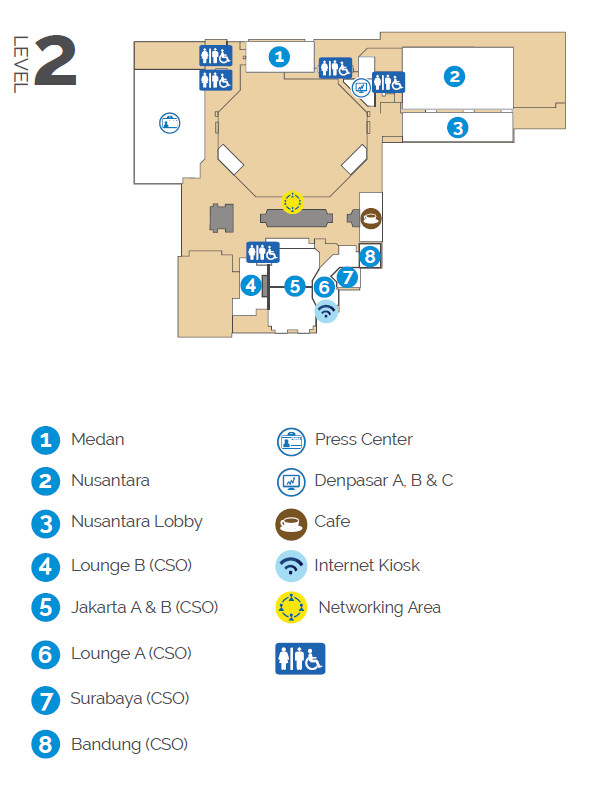


![]() JOIN THE CONVERSATION: #TRADE4GROWTH
JOIN THE CONVERSATION: #TRADE4GROWTH
This plenary session will highlight the role of trade in promoting global economic growth and stability. Panelists will discuss countries’ shared interest in a strengthened global trading system. The session will focus particularly on areas where trade reforms can make the greatest contribution to the global economy and on practical ways to advance reforms in those areas, including through the World Trade Organization.
Moderator: Christine Lagarde, Managing Director, IMF
Speakers:
Roberto Azevêdo, Director-General, WTO
Ulrik Knudsen, Permanent Secretary, Ministry of Foreign Affairs, Denmark
Pierre Moscovici, Commissioner for Economic and Financial Affairs, Taxation and Customs, EU
Ernesto Zedillo, Director of the Yale Center for the Study of Globalization, Yale University
Panelists shared their experiences with globalization and discussed whether trade has left people behind. They also considered the role, scope, and possible reform of the World Trade Organization (WTO). Speakers agreed that growth in trade and the global integration of value chains has propagated new industries and enabled higher growth and prosperity in most countries, and underscored the importance of standing firm against protectionist measures to preserve the economic gains achieved so far.
Key Points:
People left behind. Speakers agreed that many policy makers and economists have overlooked the need to address the income distribution effect of trade. However, Zedillo noted that trade is often blamed for problems that have domestic solutions and pointed to an avoidance of responsibility by domestic policy makers. Muscovici agreed on the need for domestic policies to address rising inequalities. As a best-practice example for countries reliant on global trade, Knudsen shared the experience of Denmark having flexible labor market policies in combination with a strong social safety net, including educational and retraining opportunities.
Rising trade tensions and WTO reform. Azevêdo highlighted that the aim is to increase the flexibility of agreements and to address rising tensions among members, but that most reform alternatives require multilateral consensus, which currently is missing and is hindering agreement. Knudsen, Muscovici said that until consensus can be reached, there has to be a plurilateral alliance of the willing. Muscovici urged efforts to de-escalate trade tensions through dialogue, and that unilateral measures must be dissuaded. Knudsen encouraged the international community to engage with those within the US administration who are still supportive of the multilateral trading system.
WTO dispute resolution. Zadillo underscored the critical role of the US in blocking the appointment of members to the appellate body. Azevêdo noted that the dispute mechanism continues to function—although at a limited capacity with only three out of seven members appointed. However, the appellate body will be paralyzed when the appointment of one of its members expires in 2019.
Contributor: Marushia Gislén
 |
| Christine Lagarde |
| Managing Director, IMF |
Christine Lagarde is a French lawyer and politician who has been the Managing Director (MD) of the International Monetary Fund (IMF) since 5 July 2011. Previously, she held various, senior ministerial posts in the French government: she was Minister of Economic Affairs, Finance and Employment, Minister of Agriculture and Fishing and Minister of Trade in the government of Dominique de Villepin. An anti-trust and labour lawyer, Lagarde was the first female chair of major international law firm Baker & McKenzie, between 1999 and 2004.
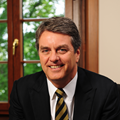 |
| Roberto Azevêdo |
| Director-General of the WTO |
Roberto Azevêdo is the sixth Director-General of the WTO. His appointment took effect on 1 September 2013 for a four-year term and was reappointed for a second term beginning 1 September 2017. He joined the Brazilian foreign service in 1984, serving in several diplomatic postings before being assigned to the Permanent Mission of Brazil in Geneva in 1997. From 2001-2005 he was the head of the Brazilian Foreign Ministry’s Dispute Settlement Unit, after which he served as the Vice-Minister for Economic and Technological Affairs at the Foreign Ministry in Brasilia from 2006-2008. He was subsequently appointed Permanent Representative of Brazil to the WTO. Ambassador Azevêdo holds a degree in electrical engineering from the University of Brasilia. He subsequently attended the ‘Instituto Rio Branco’, the graduate school of diplomacy run by the Brazilian Ministry of Foreign Relations.
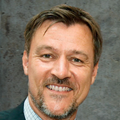 |
| Ulrik Knudsen |
| Permanent Secretary of State of Denmark’s Ministry of Foreign Affairs |
Ulrik Vestergaard Knudsen currently serves as Permanent Secretary of State of Denmark’s Ministry of Foreign Affairs and will assume the role of Deputy Secretary-General to the OECD in early 2019. Mr Vestergaard Knudsen, a former Danish Ambassador to the OECD and to UNESCO, was Permanent Under-Secretary of State in Denmark’s Prime Minister’s office between 2010 and 2013 and State Secretary for Strategic Development from 2009 to 2010. In 2013 he was Group Director for International Policy for the Vodafone Group. He has twice been Chair of the OECD Global Strategy Group, the Organisation’s high level forum on global and strategic issues, most recently from 2014 to 2017. He holds a Master of Economics from the University of Copenhagen.
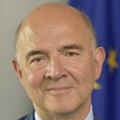 |
| Pierre Moscovici |
| EU Commissioner, Economic and Financial Affairs, Taxation and Customs |
Pierre Moscovici has served as the EU Commissioner for Economic and Financial Affairs, Taxation and Customs since 2014. He previously served as France’s Minister of Finance from 2012 to 2014 and as Minister for European Affairs between 1992 and 2002. He also has served as a Member of the French National Assembly, and as a Member of the European Parliament. He holds a Master’s degree in economics and political science, a postgraduate degree in economics and philosophy and is a graduate of the Ecole nationale d’administration.
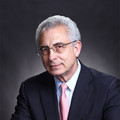 |
| Ernesto Zedillo |
| Director of the Yale Center for the Study of Globalization, Yale University |
Ernesto Zedillo is a leading voice on globalization and its impacts on relations between developed and developing nations. He served as the President of Mexico from 1994 to 2000 and is currently the Director of the Yale Center for the Study of Globalization. Prior to assuming the Mexican Presidency in 1994, he held a number of government positions including Secretary of Education and Secretary of Economic Programming and the Budget. Professor Zedillo also chaired the Global Development Network (2005 to 2011) and chaired the High-Level Commission on Modernization of World Bank Group Governance. He earned his bachelor’s degree from the School of Economics of the Natìonal Polytechnic Institute in Mexico and his M.A. and Ph.D. at Yale University.